Prices incl. GST
Out of Stock.
- Product Code: NCD-ZUXPR81DPDTPROXR
- MPN: ZUXPR81DPDTPROXR
8-Channel DPDT Relay Controller with UXP Expansion Port
This ProXR Industrial relay controller is capable of switching 8 on-board DPDT relays, each with 1, 3, or 5 Amps of current, customized at the time of ordering. Each DPDT relay includes 6 screw terminals (2 of each) normally open, common, and normally closed. DPDT relays are typically used in telecommunications and audio switching applications. Low-contact resistance makes DPDT relays suitable for most types of small signal switching applications as well. The 5-Amp version of this controller is ideal for some light power switching applications. This controller features a modular communications interface, capable of accepting USB, RS-232, Ethernet, WiFi, Bluetooth, Industrial Wireless communication modules, and more. The on-board UXP expansion port makes it easy to add external expansion hardware to this controller. Expansion options include 12-Bit Analog to Digital Converters, Contact Closure Inputs, or Digital Potentiometer outputs. Expand ProXR controllers to switch more relays of various types using the XR Expansion Port. Simply plug in any XR Expansion Relay Controller and you are ready to switch solid state relays, DPDT signal relays, general purpose SPDT relays, and high-power relays.
ProXR Series Industrial Relay Controllers
NCD has been in business since 1995, and we created the world’s first commercially available relay controller. ProXR Industrial controllers are the best controllers on the market with over 10 years of production history and a 5-Year Repair or Replace Warranty to back it up! There are many reasons that make ProXR the leading relay control solution. Let’s take a look at why ProXR controllers are unique, and why industry has chosen NCD controllers for so many years:
ProXR Reliability
The firmware we designed for ProXR series controllers is ultra-stable. Our CPU uses hardware interrupts to manage communications while processing a wide range of background tasks, such as 16 relay timers, 16 relay flashers, data parsing, and garbage cleanup. ProXR controllers will never “drop” commands, even in the most demanding environments. We use a hardware watchdog timer, built into our CPU. The watchdog timer acts as a supervisor, capable of rebooting the CPU should anything go wrong so you never loose communications. The current CPU is more powerful, more feature packed, and more stable than any other controller on the market. ProXR controllers were designed to operate non-stop 24/7 from 0 to 85C.
ProXR Features
ProXR controllers can take control of relays in ways you may have never imagined. Of course you can turn relays on, or off, or toggle the current state of the relays. It’s also easy to read the status of individual relays, relay banks, or all relays on the controller. These are basic functions every relay controller should support. ProXR relay controllers have many features you may not expect. For instance, ProXR controllers support 16 timers that run in the background. Each timer can activate a relay for up to 255 Hours, 255 Minutes, and 255 seconds when activated. Activate 16 security lights using the timers and watch them all turn off at different times. ProXR controllers also support 16 flashers, allowing up to 16 relays to be automatically cycle on and off in the background until the flasher is canceled. Relay grouping commands allow ProXR controllers to simulate large expensive relays using low-cost relays. Grouping commands are used to activate a master relay plus a few of it’s neighbors simultaneously, allowing simulation of DPDT, 3PDT, 4PDT, 5PDT, 6PDT, 7PDT, and 8PDT relays using a low-cost 8-Channel SPDT relay controller.
Automatic and Manual Relay Refreshing
By default, ProXR controllers automatically update the status of relays every time you send a command. This feature may be enable or disabled. When disable, users have the ability to configure the relay memory without actually switching relays. Once all the memory is configured, simply send the Relay Refresh command and all relays will refresh simultaneously. This is particularly useful in applications that may require you to configure the on/off state of each relay and switch all relays at the exact same time. ProXR will remember your refresh settings every time it powers up. And while we are on the subject of power-up, ProXR relay controllers do not click when power is first applied. This alone is one of the biggest reasons industry has chosen ProXR over the competition.
XR Expansion Port
ProXR relay controllers are equipped with a XR Relay Expansion Port. The XR Port allows you to add more relays to your controller as your needs expands. Combine mechanical and solid-state relay expansion controllers in any combination to accomplish your automation requirements. We manufacture SPST, SPDT, and DPDT expansion solutions, available in 4, 8, 16, 24, and 32 channel versions. ProXR relay controllers support up to 256 relays in firmware; however, expanding over 128 relays may not be possible if the cable length is too long.
ProXR Perks
There’s a lot of little things we did to make ProXR special. We created Base Station Software so you can learn to use ProXR controllers using a Windows 8 or 10 PC. Base Station supports all communication technologies and teaches you what bytes to send to your controller so you don’t have to hunt down the manual every time you want to use a new function. Simply copy and paste the communication bytes from the Base Station User Interface into your favorite programming language. Base Station will demonstrate the engineering behind ProXR series controllers, but if you want a preview, just take a look at the ProXR Quick Start Guide in the Resources section. On-line videos walk you through all the major features. ProXR controllers have a 5 year warranty and a operational life expectancy exceeding 10 years. We built ProXR controllers to last. We are committed to up-gradable hardware, not disposable hardware. We use the best relays, the best communication technologies, and we have the best support in the industry. We can help you with all of your relay control needs, no matter how complex!
LabVIEW Relay Control Support Coming in 2018
We are pleased to announce that official LabVIEW relay control drivers will be supported beginning January of 2018. This is our first official release of LabVIEW drivers for ProXR series Relay controllers! We are finalizing the drivers and resources now. We will post in the News section as well as the Learn section of our site as soon as we are ready.
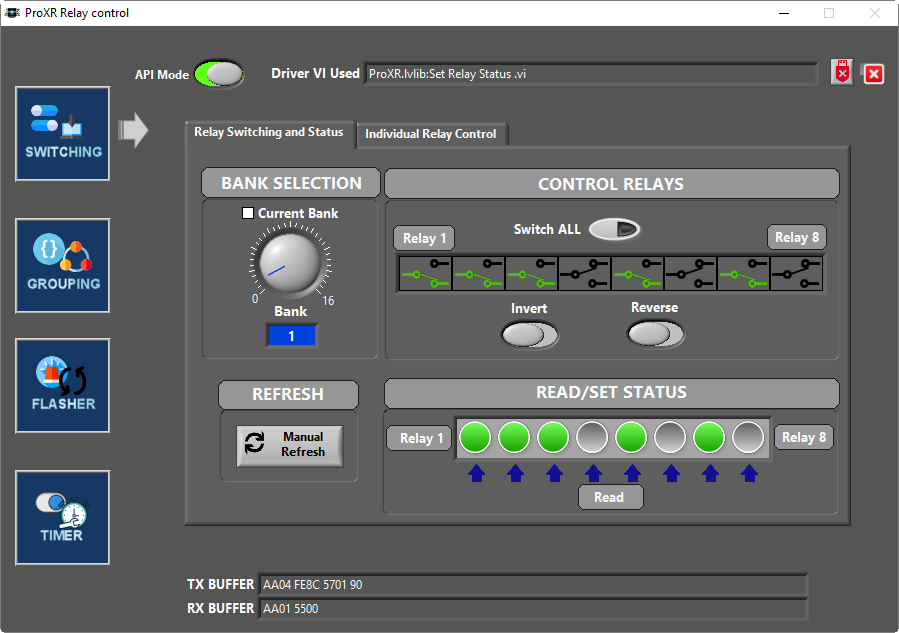
LabVIEW ProXR Relay Drivers
UXP Universal Expansion Port
This controller is equipped with a on-board UXP Universal Expansion port. The UXP port allows users to connect expansion controllers to this device, greatly enhancing the hardware features of this controller. There are essentially 3 types of expansions that may be connected to ProXR UXP series controllers. While it is not possible to mix expansion modules, multiple expansions of the same type are supported by UXP series controllers.
16-Channel 12-Bit Analog to Digital Converter UXP Expansion
The 16-Channel 12-Bit ADC expansion module allows users to connect 16 analog sensors from 0 to 5VDC to the UXP expansion port for accurate measurement. With 12-Bit resolution, analog voltages are converted into integer values from 0 to 4095. Up to 3 of these expansions may be connected to a single UXP Expansion port, allowing up to 48 Channels of analog sensors to connect to your ProXR relay controller.
16, 32, and 48-Channel Contact Closure Input UXP Expansion
Connect buttons, switches, magnetic door sensors, pressure switches, current detection switches and much more to the contact closure input UXP expansion. Expansion boards are available in 16, 32, and 48-Channel versions. Mix and match any version up to a total of 2,048 contact closure inputs to your UXP series series relay controller. Contact Closure inputs are queried in your software, simply ask the controller for on/off status of any input bank (a bank represents 8 contact closure inputs), and the controller returns a byte, indicating the on/off status of 8 inputs at a time.
16-Channel Potentiometer Output UXP Expansion
Connect this 16-Channel potentiometer output expansion to your UXP ProXR controller and take control of 16 digital potentiometers at 8-bit resolution per channel. Choose between 10K, 50K, or 100K potentiometers. Mix and match potentiometer expansions up to a total of 256 potentiometer outputs. Digital potentiometers are capable providing a resistance output for each channel within the 0-5VDC voltage range. Potentiometer outputs are capable of safely handling up to 1ma of current per channel.
Base Station Software
Base Station Software was designed to help you learn the ProXR command set. Explore ProXR features using our Graphical User Interface. Watch data bytes flow to and from the board, so you easily understand the command execution process. There is no faster or easier way to learn how to automate than Base Station, as it was designed to work with our complete array of communication modules, including Wireless, Ethernet, USB, RS-232, and many more. You only need a Windows 8 or 10 Computer to Run Base Station. Base Station was written in Visual Studio, and we even provide the source code to help you on your way!
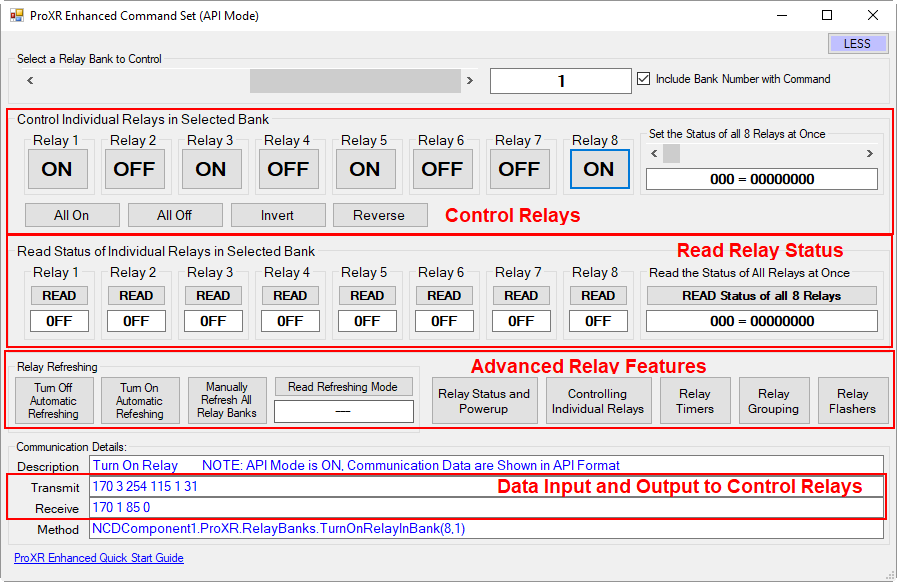
Base Station Software Controlling NCD Relay Controllers
ProXR Series Communication Options
We take communications seriously, as we believe in a modular communications and firmware that properly supports scalability into future interface technologies. ProXR controllers support API communications, which effectively wrap every command with a header, payload, and checksum to ensure reliability. NCD API commands increase processing speed because no serial timeout is required prior to command processing. NCD API commands increase reliability, as only a proper checksum will authenticate a command and allow it to process. When we first implemented API, internet communications via a TCP/IP socket could be realized because the timing problems of internet communications were eliminated. While API is optional, it is strongly advised. Our Base Station software uses API communications, so it’s possible to control a ProXR controller over the internet after configuring port forwarding on your router.
ProXR series controllers are the world’s most adaptable controllers, capable of communicating with a wide variety of communication options. Pick any of your favorite communication technologies: Bluetooth, USB, WiFi, Ethernet, Ethernet Web-i WebRelay, 802.15.4 Wireless, ZigBee Mesh, Key Fob, or RS-232. ProXR easily adapts to the communication technologies you need most. We are committed to modular communications, so your ProXR series controllers can easily be retrofitted for other applications as your needs change. ProXR controllers are never obsolete, as we are actively releasing new communication technologies that greatly enhance the connectivity of our ProXR series controllers.

802.15.4 Long-Range Wireless
Use 802.15.4 Communications if you require industrial strength long-range wireless communications. 802.15.4 is a point-to-point wireless standard, allowing fast communications. The wireless protocol acts as a long-distance wireless serial port, allowing wireless operation with no modification to software.

900HP-S3B Industrial Wireless Mesh
Long-Range Wireless Mesh networking is our favorite of all wireless communication technologies. This communication module will hop data from one location to another to reach its intended destination. Data hopping is a integrated feature of this communication technology, users do not need to do anything other than make sure wireless modules stay within hopping range of each other. We use the Digi 900HP-S3B module in our products, as this is the best the industry has to offer. With a 2 mile range between modules and up to 8 hops, it is possible to cover 16 miles of wireless territory using this technology. Using high-gain antennas, this module is capable of communicating to a remote module up to 28 miles away.
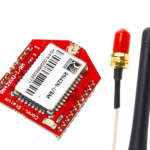
Bluetooth
Bluetooth is a easy way to add wireless communications to the NCD Industrial product line. The Bluetooth communications option acts as a transparent serial port between your computer and NCD devices. Simply pair the device with your computer and access the device through the COM port that is associated with the Bluetooth communications module.

Ethernet TCP/IP
Control NCD devices using standard Ethernet TCP/IP communications. Simply open a socket and send and receive TCP/IP data to control our devices. Our Ethernet TCP/IP Communication modules feature the Lantronix XPort communications module, the best in the industry. The Lantronix XPort module is an industrial workhorse that we have trusted for many years.

Ethernet Web-i WebRelay Communications
NCD Controllers equipped with a Web-i WebRelay interface may be controlled from a built-in web page. The NCD WebRelay interface module feature a Ethernet connection, allowing control of our devices from anywhere in the world using a web browser.
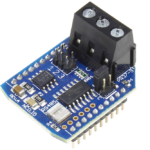
RS-485 Serial Communications Node
Our RS-485 Serial Communications Module makes it easy to network up to 256 NCD devices together at distances up to 4,000 feet. Each RS-485 node includes 3 screw-terminals for a 3-wire connection to the RS-485 master.

RS-232 Serial
NCD RS-232 Serial Communication modules make it easy to integrate the worlds most prolific communication standard. Easily interface to desktop PCs and laptops for easy control via standard serial commands. Most NCD devices typically default to 115.2K Baud; however, older low-cost devices implement 9600 baud data rate as the predominate standard.

USB
Our USB interface module makes it easy to control our devices using the USB port. Simply plug into any available USB port and start controlling our devices using standard serial commands. NCD USB Interface modules feature genuine FTDI USB to Serial Converter Chips, the very best in the industry.
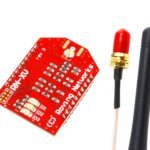
WiFi TCP/IP
Control NCD devices using standard WiFi TCP/IP communications. Simply open a socket and send and receive TCP/IP data to control our devices. NCD WiFi communication modules are manufactured by Microchip, the world leader in microcontrollers.

ZigBee® Wireless
ZigBee® wireless communications is a popular standard among our customers. The wireless protocol acts as a long-distance wireless serial port, allowing wireless operation with no modification to software.
1-Amp DPDT Signal Relay Option
This controller offers an optional 1-Amp small signal relay, allowing control of low-power telecommunications signals up to 12VDC at 1 Amp. Ideal for audio, telecommunications, and very low power switching applications. This relay has a low On resistance. The 1-Amp signal relay is of the DPDT variety, which is the same as two SPDT relays that switch simultaneously, but remain isolated from each other. This relay has 6 total user connections, two of each of the following: Common (C), Normally Open (NO), and Normally Closed (NC). Common is connected to NC when the relay is off. Common disconnects from NC and connects to NO when the relay is activated. All connections are made via screw terminals, capable of accepting up to 16 AWG wire.
3-Amp DPDT Signal Relay Option
This controller offers an optional 3-Amp small signal relay, allowing control of low-power telecommunications signals up to 12VDC at 3 Amps. Ideal for audio, telecommunications, and very low power switching applications. This relay has a low On resistance. The 3-Amp signal relay is of the DPDT variety, which is the same as two SPDT relays that switch simultaneously, but remain isolated from each other. This relay has 6 total user connections, two of each of the following: Common (C), Normally Open (NO), and Normally Closed (NC). Common is connected to NC when the relay is off. Common disconnects from NC and connects to NO when the relay is activated. All connections are made via screw terminals, capable of accepting up to 14 AWG wire.
5-Amp DPDT Signal Relay Option
This controller offers an optional 5-Amp signal relay, allowing control of signals up to 12VDC at 5 Amps. Ideal for audio, telecommunications, and light-duty power switching applications. This relay has a low On resistance. The 5-Amp signal relay is of the DPDT variety, which is the same as two SPDT relays that switch simultaneously, but remain isolated from each other. This relay has 6 total user connections, two of each of the following: Common (C), Normally Open (NO), and Normally Closed (NC). Common is connected to NC when the relay is off. Common disconnects from NC and connects to NO when the relay is activated. All connections are made via screw terminals, capable of accepting up to 14 AWG wire.
Features
- Control 8 On-Board 1, 3, or 5-Amp DPDT Relays
- Ideal for Telecommunications, Audio, and Signal Switching Applications
- Expandable to control More Relays using the XR Expansion Port
- Modular Communications Interface Supports Many Popular Communication Modules:
- WiFi, Bluetooth, Ethernet, WebPage, Industrial Wireless, USB, RS-232 and More
- 16 Background Timers Can be Assigned to Any of the On-Board Relays
- Server Reboot, Watchdog, & Keep Alive Duration/Pulse Timing Command Set
- Control One Relay at a Time or All Relays Simultaneously
- UXP Expansion port for Adding Additional:
- Contact Closure Modules – up to 2,048 Inputs
- Digital Potentiometers – up to 48 Inputs
- Analog to Digital Conversion – up to 256 Outputs
- Do you have any questions concerning this product?
- Mechanical Relay Types
- ProXR Quick Start Guide
- API Codec Quick Start Guide
- Base Station Quick Start Guide
- NCD Component Library Quick Start Guide
- Scratchpad Memory Quick Start Guide
- EEPROM Memory Map Quick Start Guide
- Download NCD Base Station
- Industrial-Relay-Control
- Further products by NCD






